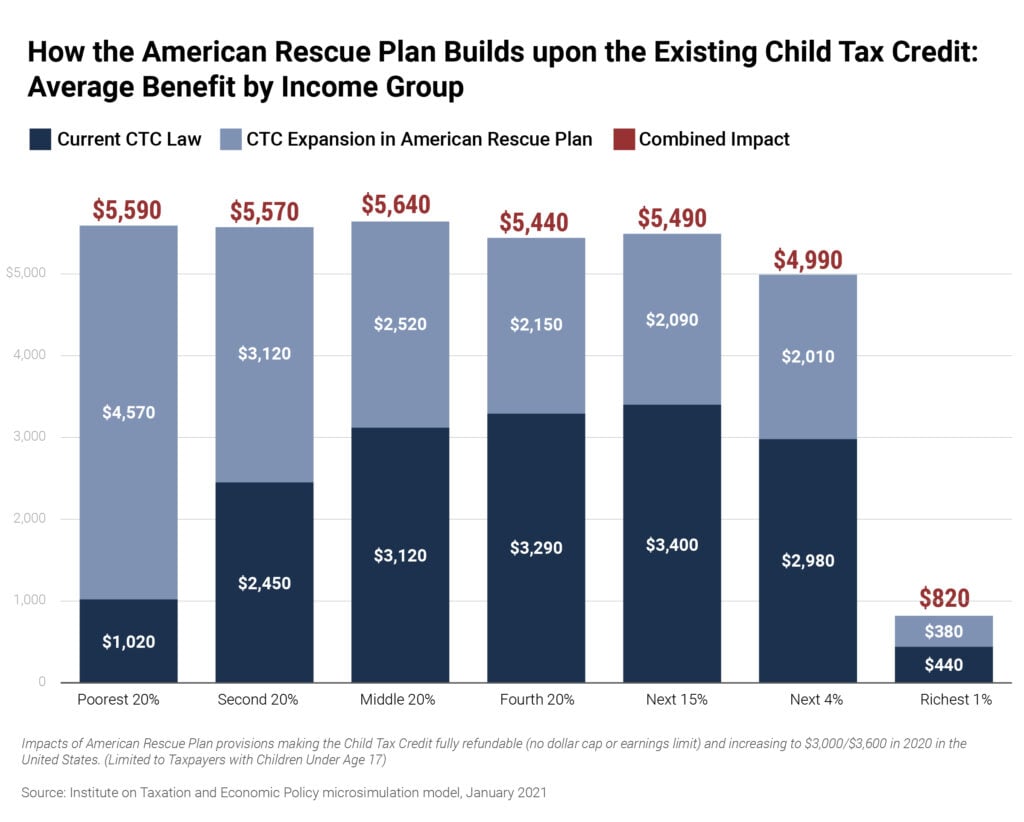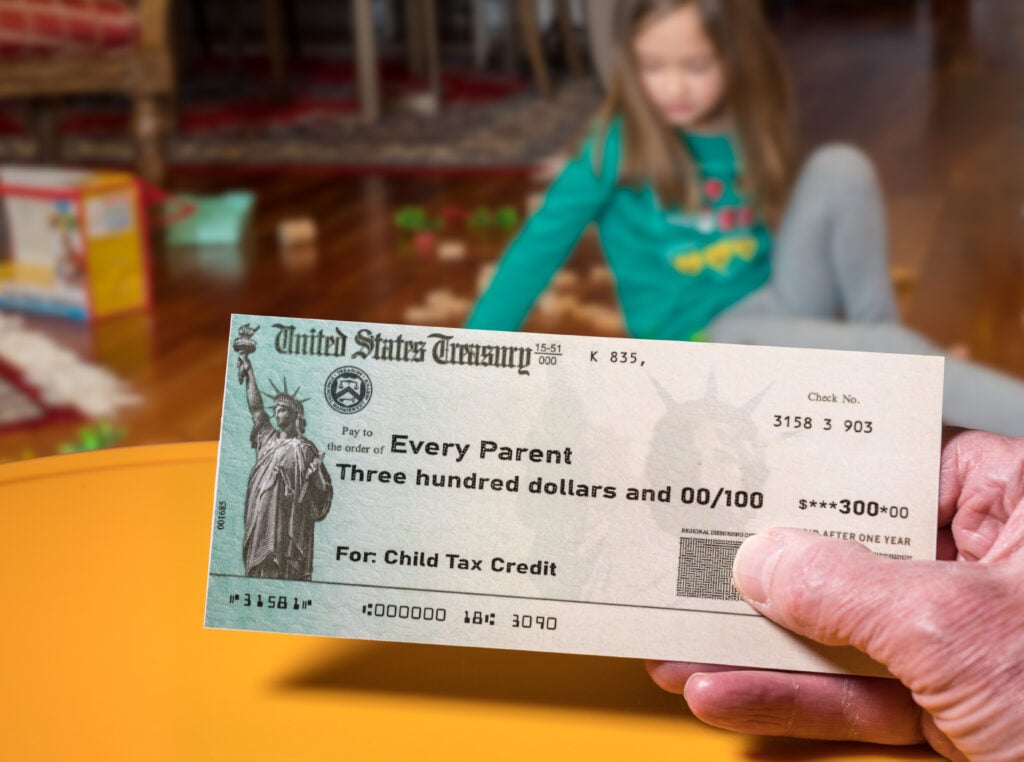Millions of children in low-income families fared better last year thanks to expansions of the Child Tax Credit (CTC). But, as has been widely reported, the monthly payments of the improved CTC that started in July 2021 ended on Dec. 15 because one Democratic senator and all Republican senators opposed the Build Back Better Act as passed in the House last fall.
The House bill continues the CTC expansion through 2022. Without action, millions of children will be kicked into poverty. Yet some lawmakers have suggested that inaction is fine because families with children will continue to receive a $2,000 per-child credit (instead of $3,000 per child or $3,600 for children under six) under the law still in effect. This suggestion obscures the facts and ignores the impact of the CTC expansion and its direct monthly payments on children and families. Prior to last year, more than one in three children lived in households with incomes too low to receive the full $2,000 credit because it is not fully refundable. This means earnings requirements and other limits reduce the amount tax filers can receive as a refund. In fact, the maximum refundable portion is reduced to $1,400 (less than half of the maximum refundable credit available in 2021).
ITEP has previously estimated that a lapse or elimination of full refundability will leave 27 million children with fewer benefits in 2022—most of them in low- to moderate-income families with working parents. If Congress acts to extend full refundability, 35 percent of children nationwide would benefit, deep poverty among children would be cut in half, and incomes would rise by 35 percent for the poorest 20 percent of households with children.
Sen. Joe Manchin, who opposes the CTC expansion, has suggested that he will only consider supporting the measure if it includes a work requirement. This is a retreat to tired stereotypes that wrongly paint non-rich people who receive any measure of government assistance as undeserving. Work requirements leave behind the millions of children being raised by grandparents, by parents with disabilities, or by parents who are out of work for any number of other reasons. Such requirements will not magically grant caretakers the ability to find and hold employment, but they will reverse the policy success of the CTC expansion and sever access to government assistance for millions of children.
Moreover, research from the Center on Budget and Policy Priorities has demonstrated that the overwhelming majority of CTC recipients are working. In 72 percent of families that would benefit from full refundability, at least one guardian is working, and in 95 percent of these families, at least one guardian is working, retired, disabled, or providing care for a child under age 2.
Policymaking grounded in truth rather than tropes will work better for the vast majority of us every time.
Lawmakers enacted the CTC improvements for tax year 2021 as part of President Biden’s American Rescue Plan Act (ARPA). As already described, the expansion was especially beneficial to low-income children. It increased the maximum credit for most eligible children from $2,000 to $3,000 per child ($3,600 for children under age 6) and guaranteed full refundability of the credit, allowing lower-income families to receive the full benefit of the CTC. By providing the credit in monthly payments from July through December of 2021, parents and their children received benefits in a way that matched their expenses (housing payments, food expenses and other bills occur every month) rather than as a lump sum with their tax refund.
The House Build Back Better Act would also reverse a provision from the Tax Cuts and Jobs Act (TCJA) that made children without Social Security Numbers ineligible for the CTC. Prior to 2017, the CTC was available with the same income guidelines to all families, regardless of the immigration status of their children. This provision singled out approximately 1 million undocumented children. When lawmakers return to work on Build Back Better and the CTC, it is crucial that they reverse this unfair and misguided policy.
Congress and the White House have significant work in the coming months to recover and renegotiate the Build Back Better Act. They should pass it and make sure it includes the CTC expansion. The policy was an immediate success that, if continued, would improve life outcomes for children who would otherwise grow up in poverty. It’s astonishing that this worthwhile policy goal, which would yield economic and social dividends for children now and in the future, is up for debate.
ITEP national and state-by-state data on CTC expansion are available here.





